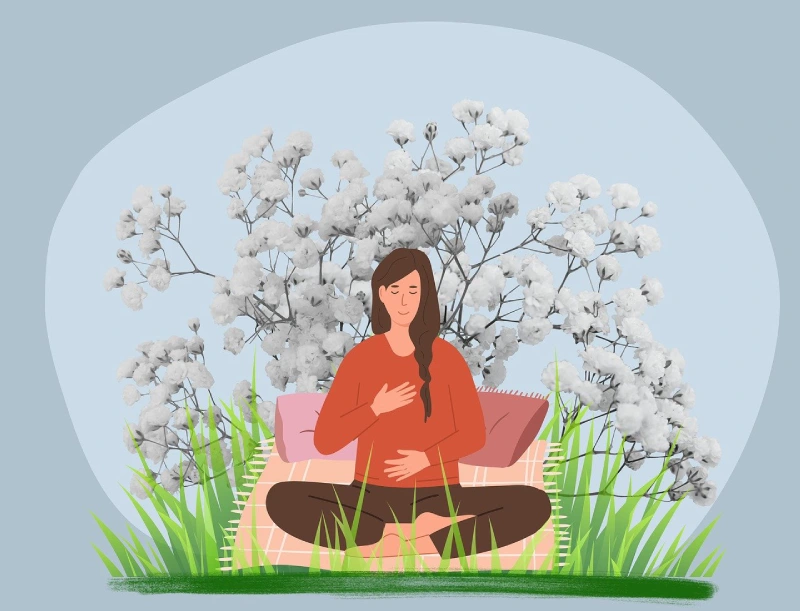Anxiety is more than just feeling stressed or worried. It can seep into every part of your day, affecting how you think, feel, and even how you interact with others. While it’s a common emotion, excessive anxiety can feel overwhelming, making it crucial to find effective ways to cope.
This article offers practical tips that anyone can use to manage their anxiety more effectively. From understanding the role of diet and exercise to recognizing when professional help might be needed, we’ll explore various strategies that can make a real difference. Whether you’re looking to refine your coping mechanisms or just starting to address your anxiety, these insights are designed to empower you with knowledge and tools for a calmer life.
In this guide, we’ll delve into techniques that have proven particularly effective in providing relief. These strategies help manage intense emotions and improve relationships, showing how therapeutic practices can blend seamlessly into daily living. Alongside these methods, we’ll discuss everyday habits from nutrition to social interactions that can significantly influence anxiety levels.
The aim is to provide a holistic approach to managing anxiety, ensuring you have a broad array of tools at your disposal. By the end of this article, you’ll have a clearer understanding of how these methods work together to create a balanced, anxiety-managed lifestyle.
Understanding DBT and Its Role in Managing Anxiety
Dialectical Behavior Therapy (DBT) is a powerful therapeutic technique initially developed to treat borderline personality disorder. However, its principles are also incredibly effective for managing anxiety. DBT focuses on teaching skills in four key areas: mindfulness, distress tolerance, emotional regulation, and interpersonal effectiveness. DBT for anxiety teaches specific skills like mindfulness and emotional regulation that help individuals manage their symptoms more effectively.
For those struggling with anxiety, mindfulness exercises can be particularly beneficial as they encourage living in the present and acknowledging thoughts without judgment. By regularly practicing these techniques, individuals can gain more control over their emotional responses and reduce anxiety triggers.
Identifying Your Triggers
One of the first steps in managing anxiety effectively is understanding what sparks it. Triggers can vary widely among individuals and might include specific social situations, stress at work, or even certain thoughts. Keeping a detailed journal of when anxiety peaks can help you identify these triggers.
This record should include what was happening before, during, and after the anxiety episode. Over time, patterns will emerge, providing clear insights into which situations or activities need attention or avoidance.
Breathing Techniques That Help
Breathing exercises are a cornerstone of immediate anxiety relief and can be performed anywhere at any time. A simple technique is the 4-7-8 method, which involves breathing in for four seconds, holding the breath for seven seconds, and exhaling slowly for eight seconds.
This method helps reduce anxiety by increasing the amount of oxygen in the bloodstream and promoting a state of calm throughout the body. Practicing such breathing techniques daily can make them more effective when anxiety strikes unexpectedly.
Establishing a Daily Routine
Anxiety often thrives on uncertainty, so establishing a routine can provide a sense of structure that is reassuring. Start by setting regular sleep, meal, and exercise times. Build in periods for work as well as relaxation.
Make sure each day includes at least one activity that brings joy or relaxation, such as reading, yoga, or spending time with loved ones. Consistency in daily activities doesn’t just reduce anxiety—it also enhances overall well-being.
The Role of Physical Activity
Exercise serves as a powerful natural remedy for anxiety. It aids in burning off stress hormones and enhances the production of endorphins, which are the body’s natural mood lifters. Even a brief walk around the block can offer instant relief during stressful times. For sustained benefits, strive to engage in at least 30 minutes of moderate exercise on most days. Activities such as swimming, cycling, or participating in team sports not only improve physical health but also act as vital distractions from worrisome thoughts.
Healthy Eating Habits
Diet is a key factor in managing anxiety. Some foods can worsen anxiety symptoms, while others can help soothe the mind. To keep your mood stable and reduce stress, include foods high in omega-3 fatty acids, such as salmon and flaxseeds, and magnesium-rich options like leafy greens and whole grains in your diet.
Reducing your intake of caffeine and sugar is also beneficial, as these substances can trigger or amplify anxiety symptoms. Eating regular, balanced meals helps prevent blood sugar fluctuations that could escalate anxiety, ensuring a more consistent mood throughout the day.
Sleep Strategies
Good quality sleep is vital for mental health, especially for those dealing with anxiety. A lack of sleep can exacerbate anxious feelings and hinder the body’s ability to cope with stress. To improve sleep, establish a regular bedtime routine that encourages relaxation, such as reading or meditating before bed.
Avoid stimulants like caffeine and electronic devices in the evening. Ensuring your sleeping environment is comfortable and free from disturbances can also significantly improve sleep quality, making it easier to manage anxiety during waking hours.
Connecting with Others
Social support is a key element in managing anxiety. Talking about your feelings with friends, family, or people who understand what you’re going through can provide a great deal of comfort and decrease feelings of isolation. Support groups, whether online or in person, can also be beneficial.
They connect you with others facing similar challenges, providing perspectives and coping strategies that might work for you too. Engaging in regular social activities can keep your mind off anxious thoughts and boost your mood.
When to Seek Professional Help
It’s important to recognize when anxiety becomes overwhelming and starts to disrupt your daily life. If you notice that your anxiety is significantly hindering your day-to-day functioning, it might be time to consider professional assistance.
Mental health professionals, such as psychologists or psychiatrists, can provide effective treatments like cognitive-behavioral therapy (CBT), which has a strong track record in managing anxiety. For those dealing with severe anxiety, medication might also be a viable option and can be explored in consultation with a healthcare provider.
Conclusion
Managing anxiety is a journey that involves a combination of self-help strategies and, if necessary, professional intervention. From adapting your diet and sleep habits to connecting with others and recognizing when to seek professional help, each strategy plays an integral role in fostering a balanced, anxiety-free life.
Remember, taking small steps daily can lead to significant improvements in managing anxiety. Encourage yourself to implement these tips gradually and seek support when needed. By doing so, you can navigate your way toward a calmer, more fulfilling life.














